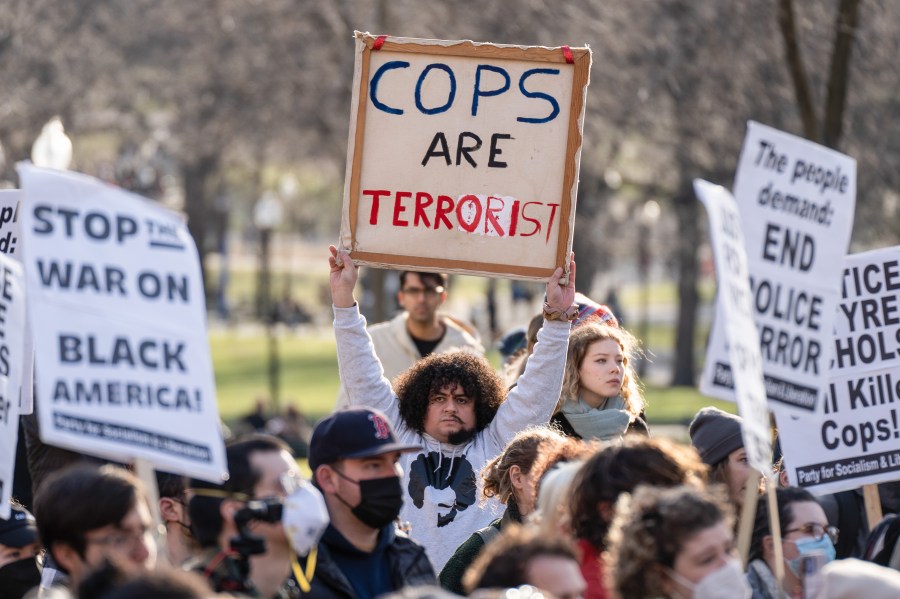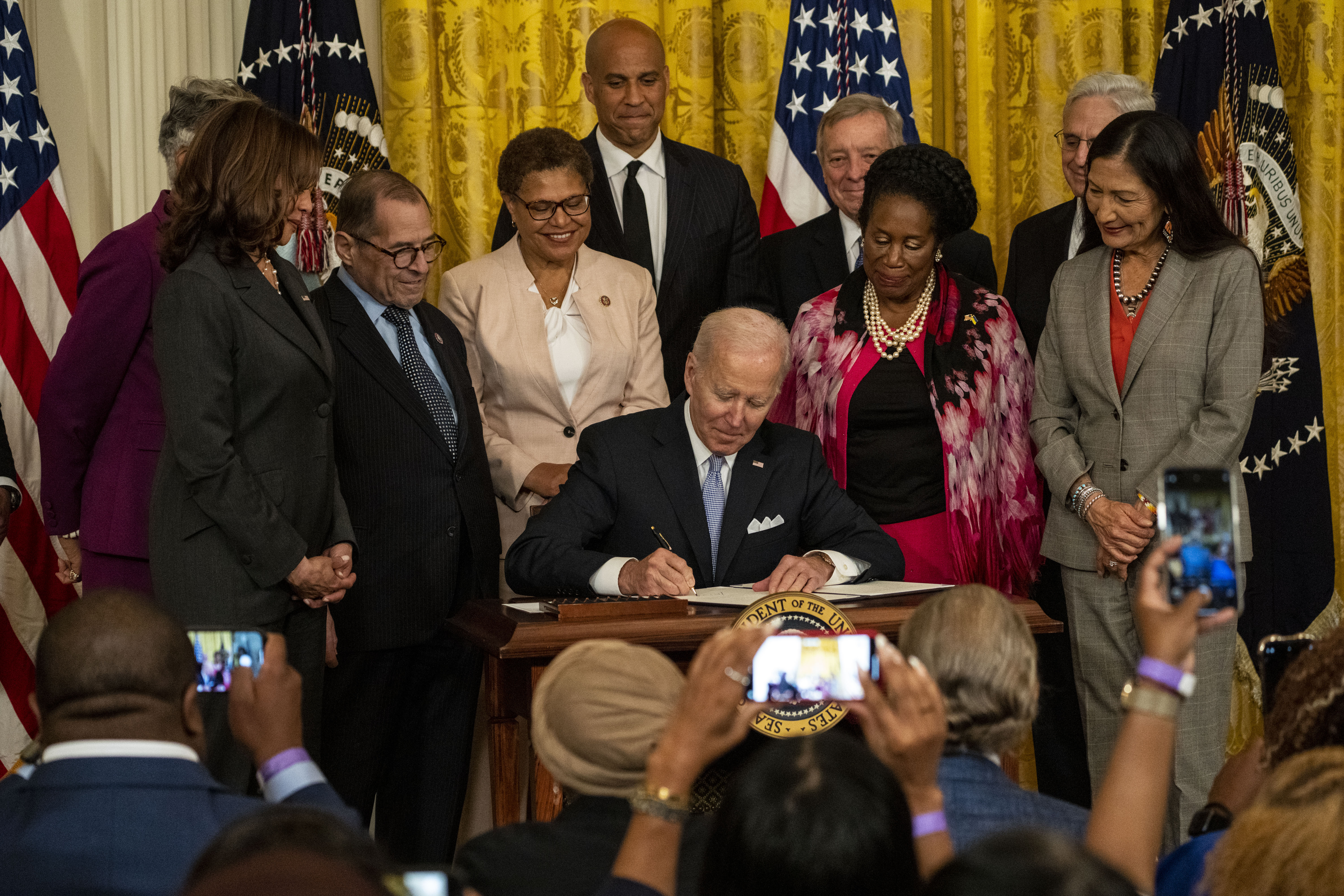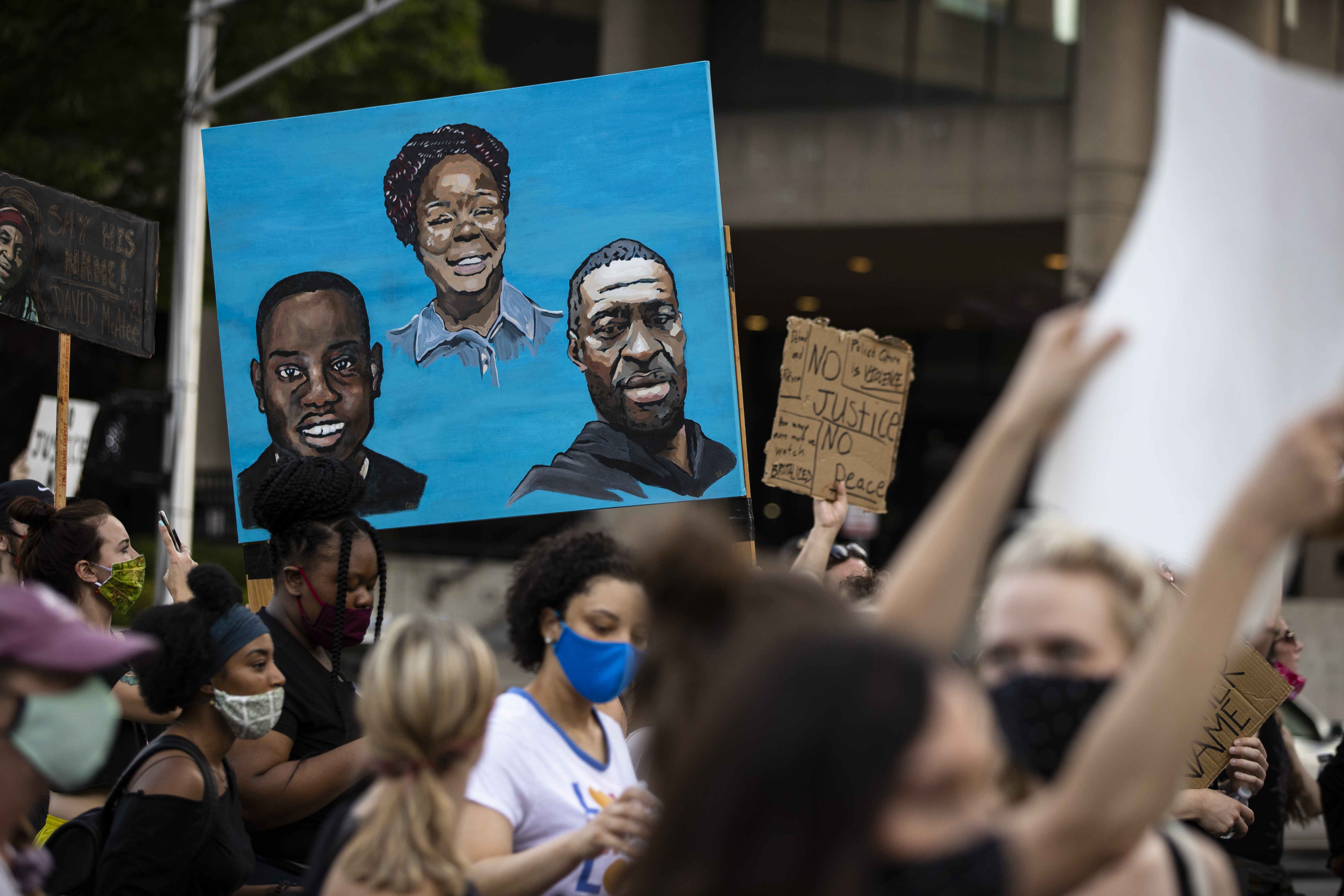Don’t expect to hear much about policing in the 2024 election cycle
Attempts to achieve police accountability have been met with obstacles on Capitol Hill and at the White House.
Though the issue of policing and race in America was a signature issue in the 2020 presidential cycle, resulting in the historic election of President Joe Biden and Vice President Kamala Harris, three years later, policing has found a snag in Washington.
Even with the U.S. Department of Justice’s recently announced a federal pattern-or-pratice probe of the Memphis Police Department after the beating death of Tyre Nichols, attempts to achieve police accountability on the federal level have been met with obstacles on Capitol Hill and at the White House.

A renewed effort to address the national concern of police brutality and misconduct in the Capitol was led by U.S. Senator Cory Booker. A source on The Hill with knowledge of Booker’s legislative work told theGrio that the New Jersey lawmaker attempted to link COPS grant funding for new law enforcement hires to police accountability measures in the 2024 fiscal year budget. However, any such police funding agreement is not expected to make the upcoming appropriations bill, the source said.
Booker notably led previous negotiations on the Hill related to police accountability with the George Floyd Justice in Policing Act. The bipartisan effort tanked in 2021 after lead Republican broker, Sen.Tim Scott of South Carolina, now a 2024 presidential candidate, pulled out of negotiations over the issue of qualified immunity.
Civil rights lawyer Ben Crump, personal attorney for the family of George Floyd, told theGrio that linking funding to police accountability would’ve been the “easy part” compared to getting the needed support for the Floyd bill in Congress.
The legislative stalling on policing on Capitol Hill is also compounded by the lack of implementation of President Biden’s executive order on policing that he signed on the second anniversary of Floyd’s murder. A mandate that all federal law enforcement officials must wear body cameras is said to be the challenge.
The president’s FY-2024 budget proposal includes $90 million allocated to the civil rights division of the DOJ for body cameras to be worn by officials at the Federal Bureau of Investigation (FBI), Bureau of Alcohol, Tobacco, Firearms and Explosives, and the U.S. Marshals Service. The funding also would be used for IT support and storage.
However, a source tells theGrio that since fiscal year 2020, the amount of funding for body cameras has not been enough. The budget request for police funding, which must be approved by Congress, is to fulfill Biden’s multi-pronged executive order.

Overall, police accountability has been intentionally left off the agenda this election cycle. For Democrats, it is said to spell political suicide. The topic often ignites police unions to target them, and Republicans regularly suggest that incidents of crime are a result of Democrats being soft on crime.
Keith Ellison, the attorney general of Minnesota and former deputy chair of the Democratic National Committee, told theGrio that the perception is that if a Democrat is deemed “anti-cop” or soft on crime, there’s a sentiment that they could “pay at the ballot box.”
Ellison, who led the successful prosecution of Minneapolis police officer Derek Chauvin for the murder of Floyd, reflected that the first time he ran for office in 2018, he won by 100,000 votes. However, when he ran for reelection in 2022 following the Chauvin trial, he won by a significantly smaller margin of 20,000 votes.
“Even if you have somebody who is guilty like Derek Chauvin, you’re gonna pay a political price,” affirmed the first Black official elected to statewide office in Minnesota.

Political strategist Shermichael Singleton told theGrio, “I don’t think it’s the biggest priority for those running on either side.” However, he added, “That could clearly change if another [police-involved] shooting occurs.”
Policing has become a key issue in Kentucky’s gubernatorial election. State Attorney Daniel Cameron, the Republican nominee who came to prominence for handling the Breonna Taylor police shooting case, was met with a resistance campaign endorsed by Taylor’s family.
Tamika Mallory, co-founder of the social justice organization Until Freedom, noted that Cameron announced a 12-point plan on policing that is largely “centered around protecting police, including ending the civil complaint review board.”
“When asked how he plans to protect citizens, he did not respond,” Mallory told theGrio. She added, “True public safety must prevent all violence, including police violence.”
Mallory said policing in America continues to be a “crisis” for Black and other marginalized communities.
“Rather than deal with accountability in a real and concrete way,” she said, “We are seeing policymakers and political candidates use public safety and gun violence as a scapegoat.”
TheGrio is FREE on your TV via Apple TV, Amazon Fire, Roku and Android TV. Also, please download theGrio mobile apps today!



